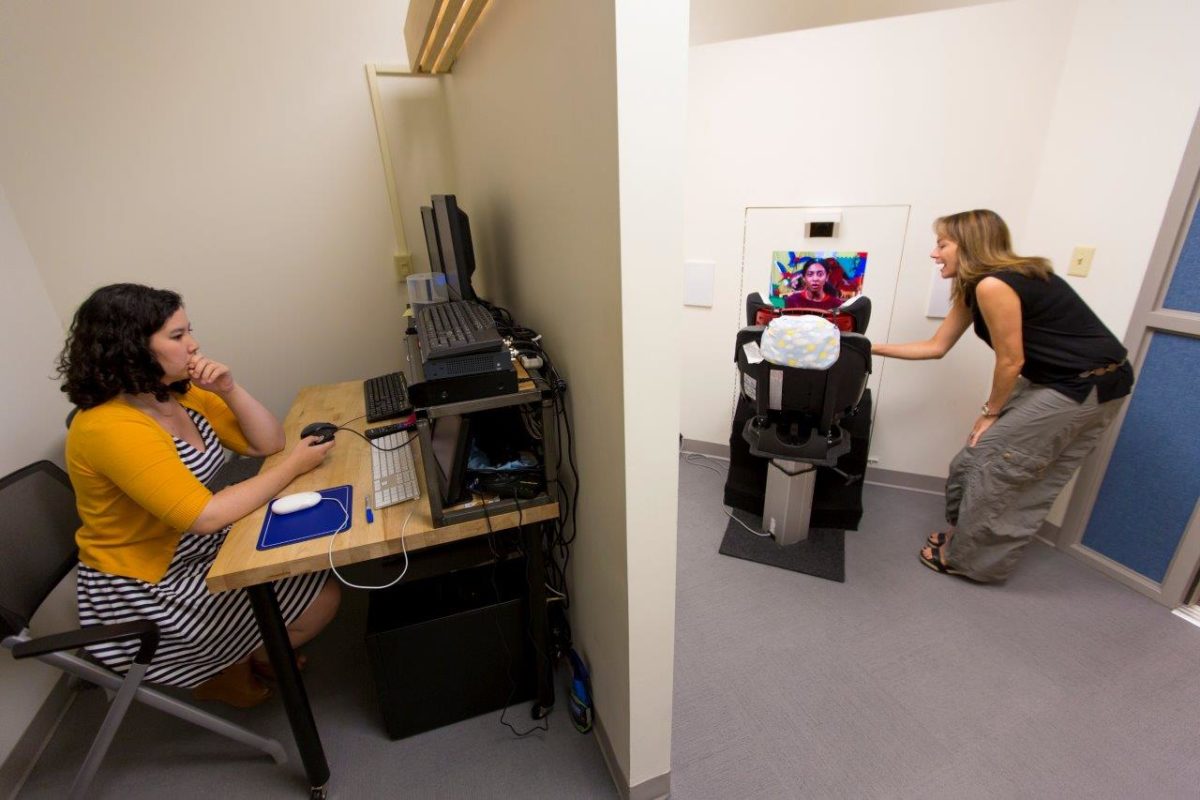Audio version of story
Like a lot of parents, Shannon Hewett knew the signs of autism. She looked out for them when her son TJ was born.
“When he was a baby, he made eye contact with me—and even today, if he is engaging with me socially, he will make eye contact,” she said.
But it turns out TJ is autistic, even with all that eye contact. He was diagnosed when he was 2 years old, after Shannon noticed he wasn’t talking the way other kids did. TJ also had problems with social cues; Shannon said it was often like he didn’t even hear her when she called his name.
But eye contact never seemed to make him uncomfortable. And that conflicted with the commonly-held belief that kids with autism naturally find it to be stressful.
Now, researchers at Emory School of Medicine, Children’s Healthcare of Atlanta and Marcus Autism Center have borne out her experience.
“It’s not that they’re averse to eye contact,” said Emory Psychology graduate student Jennifer Moriuchi, a member of the research team. Instead, she said, “they aren’t understanding that social meaning of eye contact.”
So it’s not that eye contact is naturally stressful for kids on the autism spectrum. It’s that they just don’t get that it means anything at all, and so many just don’t bother with it.
They reached this conclusion by observing how 2 year olds, both with and without autism, reacted to looking straight into someone’s eyes.
“And when we did this repeatedly, we found that young children with autism continued to look right at the eyes,” said Moriuchi.
Just like children without autism.
The team concluded that any anxiety that comes with eye contact likely comes later in life, because it signals social cues that confuse kids with autism.
Moriuchi said the finding is a pretty big deal. It settles a debate that’s been around since autism was first described back in the 1940s.
And, she said, this better understanding will lead to better treatments.
“Especially for young children, treatments will likely be most effective by helping [them] engage socially with other people, and understand underlying meaning of social cues and social information, such as eye contact.”
The findings make Hewett, mother of 6-year-old TJ, hopeful.
These days, he’s doing really well. He’s bright, is a major fan of school buses, and loves to sing. But, she said, “I know that my son will not have a typical life … All I can hope for are little glimpses of understanding sometimes.”
Her hope is that discoveries like this will help to make his life even better.
Like us on Facebook

9(MDAxODM0MDY4MDEyMTY4NDA3MzI3YjkzMw004))









